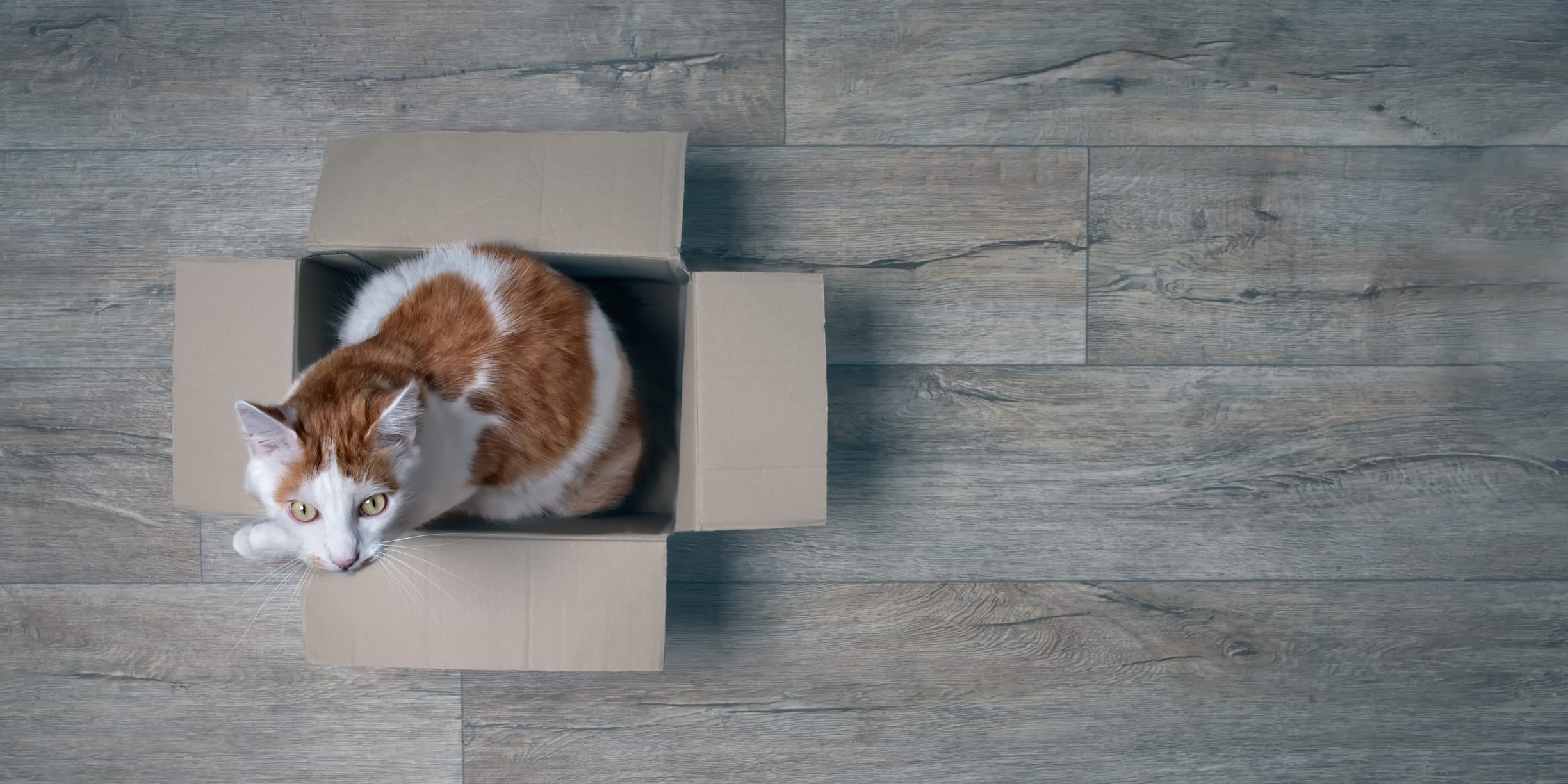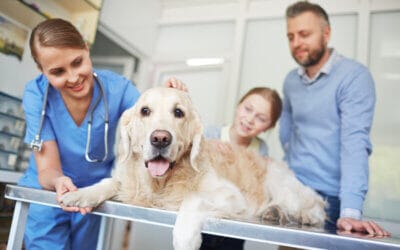Cats and dogs act in ways that are strange to us, but healthy for them. Learn more about 6 common pet behaviors — and when you may want to check with your veterinarian.
1. Why does my cat stare at me with her mouth open?
Have you ever looked at your cat and saw her sneering with her mouth gaping? It can be an unusual sight, but this is normal. This action is called the Flehman response. Your cat is analyzing scents that need a bit more investigation.
Your cat will curl her upper lip, open her mouth, and use her tongue to flick scents to the roof of her mouth, where the vomeronasal organ is located. This special organ lets cats “taste” scents. Typically cats will use the Flehman response to analyze pheromones from other cats. You may see your cat using it to investigate a new environment or where another cat marked their location.
2. Why do dogs howl?
Howling can be traced back to dogs’ common ancestor, the wolf. Wolves howl to communicate with their pack and other animals. Although our dogs are running around living rooms and not in the wild, they still have their howling instinct.
The meaning of howling depends on the situation. Wolves used to howl to guide their packmates home. If your dog hears you approaching the house, he may howl to try to guide you home.
Wolves also howl to tell other animals to stay away. Your dog may let out a warning howl if he hears strangers or unusual noises.
Howling is also a way of crying. If your dog is usually quiet and rarely howls, but starts howling out of nowhere, he may be hurt. Contact your vet if you think your dog is injured.
3. Why do cats love cardboard boxes?
Cardboard boxes are little hideaways for your feline friends. Cats feel safe inside a secure enclosed space.
Cats in a new environment can especially benefit from cardboard boxes. These simple items can help your cat adjust to her new surroundings because they let her have a space that is all her own.
Boxes are also the perfect toy! Your cat can chew it, scratch it, and jump on it without getting in trouble. She can let her natural predatory instincts come out too. You might see your cat use the box as a hiding place before she pounces on her prey, even if that prey is just a toy.
4. Why does my dog lick and chew his paws?
Seeing your dog with his paw in his mouth can seem a little strange to us humans. This can be harmless grooming, but it can also be a sign of a more serious problem.
The first step you should take is to inspect your dog’s paws. Check for outside debris, such as burrs or grass, that could be stuck in between his toes. You will want to check for ticks as well. Your dog may be trying to remove these irritants.
If your dog’s paws are red, bleeding, or cracked, then contact your vet immediately. Your dog may be injured, had an allergic reaction, or burned if he was walking on hot pavement. A vet can help you find the best treatment.
Your dog could also be anxious or bored. If the area becomes inflamed from licking or chewing, talk to your vet about medication. You can also work with your vet to identify the cause of anxiety.
In less extreme cases, some dogs just like the way it feels. But if the habit becomes excessive, then this could be the result of an underlying disease, such as arthritis. Talk to a vet to determine the issue. Luckily, most causes are treatable.
5. Why do cats eat plants and grass?
Our feline friends can often be found eating grass and houseplants, but why do cats find them so appetizing? There is no solid answer, but there are a few possibilities.
Your cat may have an upset stomach from something she ate or inflammatory bowel disease. Eating grass can comfort her stomach, or it can make her vomit the food that made her sick.
In some cases, your cat may just like the way it tastes! But if your cat is constantly eating grass and plants, you may want to talk to your vet. There could be underlying issues, such as anxiety. If your cat is anxious, your vet can help identify what is triggering her anxiety and propose healthier outlets for her.
Keep in mind that grass may contain pesticides or herbicides that can harm your cat. Also, be sure to research a houseplant and find out if it is cat-friendly before bringing it home.
6. Why does my dog lick my face?
Just like howling, this behavior can be traced back to wolves. Wolf puppies lick their parents’ mouths to get them to regurgitate partially digested food. This helps the wolf puppies transition to eating solid food.
There are a few reasons why your dog loves licking your face, and all of them are normal. This is a way for dogs to try to groom you or submit to you, since they see you as their pack leader. He might just want your attention or wants to tell you he adores you!
Luckily, there are minimal health risks from dog saliva, but if your dog licks a wound on your skin, then this can lead to infection. You may want to wash your hands or face right after a dog decides to show you how much he loves you.
Want to know more about your pet’s behavior? Check out these articles!



